When Ian Worboys concluded the £2bn sale of P3 Logistics Parks to Singaporean sovereign wealth fund GIC in one of the biggest real estate deals of 2016, you could have forgiven him for calling time on his glittering industrial and logistics career.
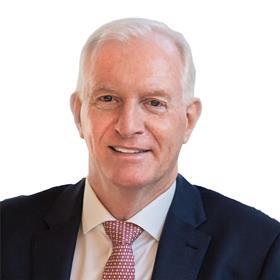
Prior to P3, which was owned by TPG and Ivanhoé Cambridge, he had worked at the likes of Gazeley, Parkridge and Panattoni, having started his career four decades ago as an agent at Strutt & Parker, and the self-confessed ‘shedhead’ had been there, seen it, done it. Indeed, he had probably built and leased a warehouse to the company distributing ‘been there, seen it, done it’ t-shirts.
However, after taking “a year and a bit” off due to a no-compete clause put in place by GIC – a period that saw him write 10 more books in his ‘Crush’ series of children’s books for charity – Worboys started to get itchy feet.
“Real estate is in my blood,” he says over a Zoom call from his home in Monaco.
Since the no-compete clause ended in November, Worboys has had a whirlwind six months, joining forces with US development giant Trammell Crow Company (TCC), part of CBRE’s stable of businesses. Worboys’ remit is to grow TCC’s European logistics business from scratch and the shed industry stalwart cannot wait to get started.
In an exclusive interview with Property Week, he explains why he took on the role and what he thinks the opportunities and challenges will be for the business and the wider industrial and logistics sector post Covid.
Prior to officially launching TCC’s pan-European logistics arm this February, Worboys had contemplated setting up his own development business.
“My intention was to set up my own company with four or five people who I’ve known for a long time to head up different countries and to start with a bang in five countries,” he says.
He went as far as appointing JLL to look for some investors for the venture. Around the same time, a contact called to say TCC was looking to launch a pan-European logistics division. “I knew of Trammell Crow from back when they were in Europe many years ago, but I didn’t really know what they were doing.
“I went on their website and my jaw dropped open when I found out that they’ve got something like $14.9bn (£1.08bn) worth of product under construction at the moment in America alone, with a further $6bn already signed, that hasn’t started on site.”
Trader developers
Worboys says he decided to go with TCC, rather than launch his own venture with investor backing, because the main people on the board of the US company are experienced developers themselves.
“In some companies, you’re dealing with asset managers or people who don’t understand development but control it,” he says.
“I had four or five companies who all said they would back my idea of starting this big company, but at the end of the day what swung it was the mixture of the values, the people, the decision making and the way that Trammell Crow has carried out development in America.
“A lot of funds like to land bank and wait for a build to suit, which is fine and makes sense. The Trammell Crow way is if you buy land, you want to develop it. They are a trader developer.”
We’ve been through the discovery stage, we’re in the launch stage and execution comes when we start on site
He says his experience at P3, which saw him “join as a developer and have to become a CEO quite quickly”, stands him in good stead to drive forward the ambitious plans he and TCC have for the new pan-European logistics arm.
Earlier this month, the company announced the appointment of the highly experienced Mike Forster to oversee UK activity and company heads have also been lined up – but not yet announced – in Spain, Germany and France.
Worboys says he is also looking at establishing a base in places like the Czech Republic, Poland, Italy, and the Netherlands, and anticipates that by Christmas the existing 10-strong pan-European team will have doubled.
He believes that the continued attractiveness of the industrial and logistics sector means that there are significant opportunities for trader developers such as TCC.
“People like GIC and Prologis, when they develop, they keep it themselves. So, there’s a shortage of companies such as TCC, who are actually supplying product to the market,” he says. “That means you’re always going to get very good pricing for your product, once you’ve built it and let it.
“Also, being pan-European you can maximise occupier content. If I was just Ian Worboys in the Czech Republic or in the UK, it would be much harder for me to attract the larger companies of the world who want to be able to do multiple deals in multiple locations and that’s why I’ve set the business up in the way I have.”
Worboys says his team is on the lookout for a raft of logistics opportunities ranging from big-box distribution centres to last-mile distribution. He may even look at doing some data centres as well.
Putting a team together
He acknowledges that logistics is a hot market at the moment and pricing is keen but says he is confident that the team he has assembled are capable of locating and securing development opportunities.
“I started out in 1981 and during that time, myself and Mike Forster (pictured below) have built up huge contacts in the agency market, in the professional market of banks, financiers and capital markets, and mainly with occupiers,” says Worboys.
“If you have someone who has stuck to their values over that period of time, who has not upset occupiers and who has a good name – and all the people you’ll see announced over the next few weeks [as TCC’s new country heads] are top leaders in their markets, who have worked for various developers and occupiers – then I believe that even with a clean slate, we can hit the ground running.
“It’s very competitive, I’m not denying it. But every time I’ve changed company, someone else has being king of the jungle.” He points out that when he joined P3 it was only worth a couple of hundred million, but when he left it was worth a few billion. “So you can build companies if you stick to your values and you’re well respected.”
Asked if he is daunted in any way by the challenge of launching and establishing a new business in what has to be the most competitive environment the logistics sector has ever experienced, he says: “I’m a shedhead, so to be honest with you it excites me. I like the challenge.
“The one thing all this grey hair does is says you have got some experience. You know what you can win and you know there are some things it’s not even worth getting after. When I was 30 years old and wanted to conquer the world, I was chasing in every single direction, working 24 hours a day and upsetting my wife. But you learn and one of the main things you learn is to find the right people.
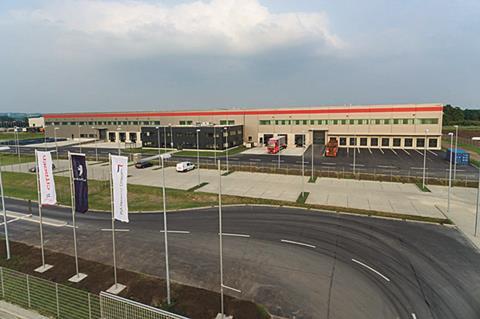
“I’ve hand-picked all the country heads and they have hand-picked the people they want to work for them and in doing that we’re really putting together a strong team.”
He is hoping the company will get on site with its first few development projects in Europe by Christmas and then he plans to significantly ramp up activity during 2022. “We’ve been through the discovery stage, we’re now in the launch stage and the execution comes when we start on site,” he says.
One of the big questions in the industrial and logistics market at the moment is whether the sector is in bubble territory. Worboys acknowledges that in some locations, pricing has skyrocketed.
“Land prices in the north of England are now heading towards £1m an acre,” he says. “If you’d gone back even two to three years, that was probably £0.5m an acre maximum. That’s been caused by yield compression because if your multiple has gone up so much, then all of a sudden, there’s more in the pot. Either the developer takes more profit, which we’d all love, or the reality is, we’re in a competitive world and so actually, the land seller does better.”
Rents may not have increased at the same rate as land prices, but Worboys says the UK has seen strong rental growth over the last seven or so years and he anticipates that trend continuing domestically.
As for some of the European markets he’s potentially looking to break into over the next few years, he says: “In the Czech Republic, rental growth is steady. In Spain, it’s pretty flat. France hasn’t gone up hugely, but now there are signs there are deals happening again because of the shortage of supply. The old thing of ‘location, location, location’ still counts when it comes to rental growth.”
However, although he accepts pricing is toppy for industrial and logistics stock, he does not think the sector is in a bubble, arguing that it was historically mispriced in relation to bonds.
“Yield compression has happened across Europe and the UK is leading it again, but Germany has now got yields down at just over 3%. When I started, yields were between 10-12% or maybe even 14%, rents were a couple of pounds per square foot and the maths was easy.
“Now you’ve got your yields down in the threes. I’ve never seen it before and I can still see some yield compression coming because if you’re depositing money in the bank and it’s negative interest, it doesn’t take much to work out that anything with a positive yield is going to be better than leaving it in the bank.”
One of the big challenges for Worboys and his team will be finding the right sites in the right location at the right price to deliver the best returns for his US backers. However, the industry stalwart says the biggest challenge they face is spiralling construction costs.
Controlling costs
“In some parts of the world you’re seeing steel double in price because there’s a shortage of steel, so for any developer at the moment, controlling construction costs is a big issue,” he says. “You have to make sure that you’ve got your price fixed for a certain period and you have to make sure that you’ve pre-ordered steel or that you can switch to concrete.
“That’s what happens in these periods. I think I’ve had five recessions – if you count Covid as a recession it’ll be six – and in all of those recessions, as you come out, construction prices go up. Having the ability to switch from steel to concrete can be a good way of saving costs, but it takes longer to build.”
Another issue that is adding to delivery delays is planning – not so much here as elsewhere. Worboys says that while you can get planning for a project in eight to 10 weeks in the UK, in France it can take as long as 13-15 months. He adds that in some territories, Covid has further slowed things down.
“What used to take six to eight weeks in Germany now takes 12 to 14 weeks,” he says. “This is just Covid.”
The challenges in each country are different, he continues, which is why it is important he has a local team of experts on the ground with an intimate understanding of the ins and outs of the market.
Logistics developers were looked upon as almost the poor cousins, so it’s lovely to see we’ve gone from last to first
The opportunities across Europe are also slightly different. Some of the big e-commerce operators do not have as large a presence in Europe as they do in the UK, where online shopping is more established, so that potentially provides scope for future growth for TCC.
Another major opportunity Worboys has identified centres on the shift in the perception of what constitutes a prime location for occupiers. Historically, a lot of companies have struggled to find workers to man their warehouses and they are now more willing to look at areas that they may not have previously considered, he observes.
“One of the opportunities is that there are locations that would historically not have been considered prime but that to an occupier are now seen as prime, because prime to them means they can get people to work there and they can get the goods to and from it,” he says. “Some of those areas might have previously been considered B class, but as an industry we have to get our head around what does A class mean to occupiers.”
Worboys sees yet further opportunities in last-mile logistics, particularly for delivery of things like fresh food. The big challenge there is finding suitable sites in the right locations.
“Historically, no shed-shifter would have looked at a residential site, but now we can,” he says.
The ability of industrial and logistics developers to compete with residential operators for sites is one of the major changes he has noted over the years and reflects a seismic change in the way the sector is now viewed.
“When I started, I think we were looked upon as almost the poor cousins, so it’s lovely to see that we’ve gone from being last to first,” Warboys says. “Back in those days, people didn’t really understand what logistics was.
“They just saw these big boxes. Ecommerce has been the big game changer in that. All of a sudden, people realise that their goods can come directly from a warehouse. They don’t actually need the bricks of a shop.”
Looking to the future
The changing nature of the sector has also, of course, impacted the height of warehouses. “In the good old days, everything was 6m, whereas today, 12m is pretty much the standard across Europe,” he says.
“Back in the 1980s, when I was chairman of the Industrial Agents Society, I suggested that warehouses should be let on a cubic basis rather than on a per square foot basis. It’s illogical to charge the same for a 10m or a 12m warehouse because the square footage is the same even though the volume is 20% different. I think that’s something that will change in the future.”
Speaking of the future, during his year off he spent a lot of time pondering how warehouses will look over the coming years. He envisages buildings fitted with solar panels and massive batteries capable of storing green energy and charging the army of electric vehicles bringing goods to and fro, while also powering the robots working inside the buildings. He also sees more buildings becoming net-zero carbon.
“The future is green for warehouses and the future is green for me as part of the big CBRE machine at Trammell Crow,” he says.
While many developers might find the prospect of building a new company from scratch in the hottest industrial market in history daunting, it’s clear Worboys relishes the challenge. After all, real estate is in his blood.
Industrial and logistics sector abuzz with activity
- 1
- 2
- 3
- 4
- 5
 Currently reading
Currently readingInterview with Ian Worboys, former P3 Logistics Parks chief executive
- 6
- 7
- 8
- 9
- 10
- 11

































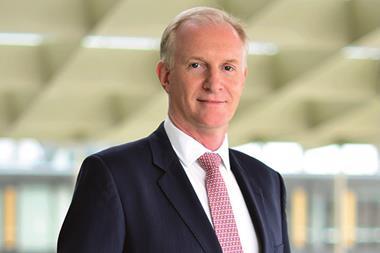

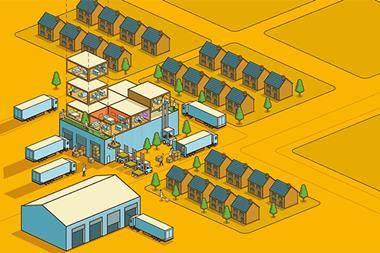
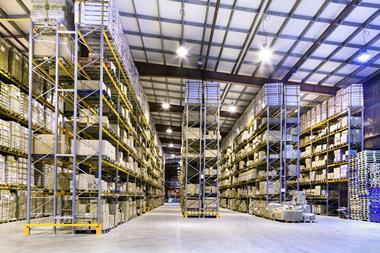
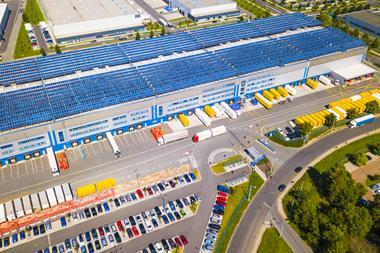

No comments yet